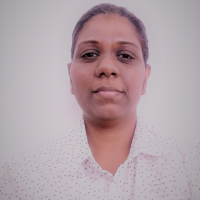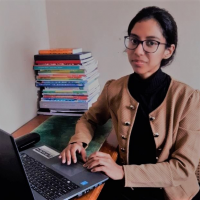
Brainda L’Utile
Dear all,
Having had the opportunity to meet, help and work with many people internationally, I made up my mind to share with you my reflection on what I have been observing in the domain of teaching French. I, for sure, do not pretend to be an expert in teaching this language at all.
Having a critical analysis on these 2 questions can help you to better understand my point of view:
1. Do you have the passion to teach a Second Language such as French or you want to teach it because there is a demand for it?
2. Do you have the will to make sacrifices and the patience to constantly learn and become fluent in speaking French, or you want to do it because your mother, father or a friend did it before you and they survived?
If you choose to become a French teacher because there is a great demand for it, you will probably have a job until you take your leave. However, the question that begs an answer deals with whether your work is challenging and it leads to the full development of your professional self. Teaching a language such as French, in a country where English is the mother tongue, is a very demanding and challenging experience. Although it has a lot in common with teaching any other subject, a distinct characteristic can be attributed to it that puts successful second language teachers in a league by themselves.
In order to teach French to non-French-speaking students, you have to love what you do, be sincere in showing your interest in your students and subject, and achieve an acceptable level of verbal fluency to make you feel at ease teaching this language. In our view, becoming fluent is a long process that is not limited to holding a diploma in French. It is a constant contact with the oral language that many credited courses, online or on site, do not provide for various reasons. And according to many teachers and professionals with whom we have worked, the result is the perception of becoming fluent in French when, in reality, they leave these courses with a credit and a high mark, but their real verbal fluency remains in the classroom. And that adds to their frustration and forces them to say:
“I understand your question but I am not confident enough to respond to it”
In our opinion, as a French teacher, you have to make choices and sacrifices. Everything can be achieved but at a cost. Reading and writing in French help but using the vocabulary you learn and retain through reading, verbally first, helps a lot more and makes you feel at ease in expressing yourself in French. If you do not use the vocabulary you learn, by speaking the language first, it will be difficult for you to know whether you make mistakes when you speak French and where your mistakes are. Therefore, you need someone who masters the language to point your mistakes to you, correct them and help you avoid making them again. Otherwise, you will keep making them and thinking you are fluent in French because you hold a diploma and speak quickly with a beautiful accent.
In our view, verbal fluency has little to do with your qualifications, your speed and your accent in speaking French. Oral fluency has children called Clarity, Concision and Simplicity. At first, speak the language properly, clearly, with concision by using relevant and simple vocabulary, free of the influence of Anglicism, and later worry about improving your accent and your speed. We see the accent as the dressing on the salad, which makes it taste better but it is not the most important ingredient, and we wonder whether anyone would drink/eat the dressing without the salad. The same goes for the accent. You can improve your accent by listening to videos, on your own, at your own time and pace, where no one can hear you. You make mistakes, you laugh at yourself and you challenge yourself to improve your accent. It is not easy, for sure, but it needs to be done with consistency. Use your sense of humour and, above all, be humble, open to learning new ideas from others and fully convinced that No One can become a professional dancer without going on the dance floor.
Again, I am not an expert but I am doing my best every day to help and light up roads for all students. There’s no need to be perfect to inspire others. Let people get inspired by how you deal with your imperfections. Better to do something imperfectly than to do nothing flawlessly.
Seek for your weaknesses, find solutions and challenge yourself every day to improve them.








